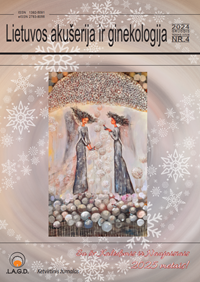CALCIFEDIOL – AN ADVANCED OPTION FOR TREATING VITAMIN D DEFICIENCY IN POSTMENOPAUSAL WOMEN
Abstract
The efficacy and safety of medicinal products containing calcifediol, a vitamin D metabolite, have been confirmed in short-term clinical trials; however, the effects of long-term use are less studied. This article presents the results of a one-year, phase III–IV, double-blind, randomized, controlled, multicenter clinical trial evaluating the efficacy and safety of monthly doses of calcifediol (0.266 mg) and cholecalciferol (25,000 IU or 0.625 mg) in postmenopausal women with vitamin D deficiency (25(OH)D < 20 ng/ml). The study included 303 women randomly assigned to three equal groups: Group A1 (12 months of calcifediol, 0.266 mg/month), Group A2 (4 months of calcifediol, 0.266 mg/month, followed by 8 months of placebo), and Group B (12 months of cholecalciferol, 25,000 IU/month). After 4 months, a stable 25(OH)D level was observed in both the calcifediol and cholecalciferol groups: 26.8 ± 8.5 ng/ml (Group A1) and 23.1 ± 5.4 ng/ml (Group B). At 12 months, the levels were 23.9 ± 8.0 ng/ml (Group A1) and 22.4 ± 5.5 ng/ml (Group B). Discontinuation of calcifediol in Group A2 resulted in a decrease in 25(OH)D levels to baseline: 28.5 ± 8.7 ng/ml at 4 months and 14.4 ± 6.0 ng/ml at 12 months. No treatment-related safety issues were observed in any group. Long-term monthly use of calcifediol is effective and has a favorable safety profile; however, discontinuation of treatment significantly decreases 25(OH)D levels. Notably, calcifediol acts faster compared to cholecalciferol.

